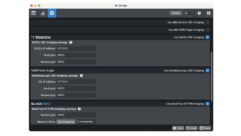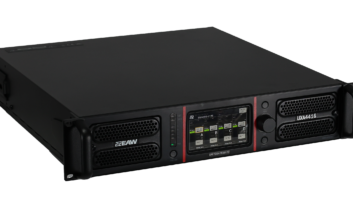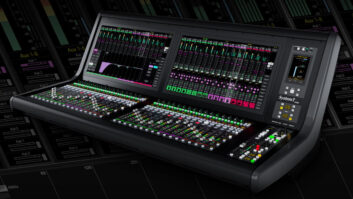Taking It to the Next Level
Oct 1, 2003 12:00 PM,
Chuck Wilson
In 2004 the Construction Specifications Institute (CSI) will release an all-new version of MasterFormat, the construction classification document used by specifiers nationwide, with new and separate divisions for communications and life safety. After years of working closely with CSI, the NSCA recognizes that this will inevitably result in increased recognition of the systems integrator’s skills. It will be more likely now for specifiers to make allowances for electronic systems from the design phase of a commercial project, thus improving the end-user’s ability to budget appropriately and helping the integrator complete the job on time and within budget. The next logical step for the NSCA is to provide clear competencies and certifications for specifiers to require, which will ensure that the best possible contractor is handling the job.
Coinciding with the springtime release of the 2004 MasterFormat, NSCA will unveil certification exams for the electronic systems industry at two levels at the NSCA Expo in March. Under the NSCA Electronic Systems Certification (ESC) program, one certification will be given for electronic systems technicians (ESTs) and another certification will be awarded at a higher level to electronic systems integrators (ESIs). The NSCA is confident these certifications will effectively address the construction industry’s demand for ways to appropriately specify technology into commercial buildings. By implementing such a program, the NSCA is also addressing the industry’s need for better-trained employees.
Although there are several good certification programs on the market today for data cabling, A/V, and other areas, there is nothing available for the integration of systems. Until now the industry lacked a way to demonstrate proficiency in the integration of multiple technologies and how they relate to the overall construction project. As the industry continues to grow toward this end, it is absolutely imperative to help companies demonstrate to their customers just how valuable they are to the project.
Requirements for the EST certification include two years of work experience, and the ESI certification requires four years work experience and an EST certification. For those professionals who qualify for the upcoming EST exam in March, the NSCA is offering an online, eight-week prep course beginning in January.
The NSCA is also addressing entry-level technicians through the new EST Training Series. Funded by the NSCA Education Foundation, Level 1 of the series started in September 2003 with a group of professionals with less than two years experience. The series offers 165 hours of online training from September through May and uses Blackboard technology, software common to many colleges and universities. Students interact with the NSCA master instructor and an in-house facilitator designated by the sponsoring company. There are three subsequent levels in the EST Training Series, each offering an additional 165 hours. Entry into the program depends on the student’s skill level.
Certification for both ESTs and ESIs is a natural progression for the students of the Training Series. A separate component to the EST Training Series is the Apprenticeship support module. The classroom training portion is paired with on-the-job training guidelines meeting requirements of the U.S. Department of Labor.
The NSCA is taking bold steps to drive recognition of ESTs at both the state and national level. As a result, the organization has the opportunity to positively influence installation standards, wage classifications, and future government regulation. This industry is in the middle of exciting times, and it is imperative we capitalize on the growth. The intent of the ESC program will also support and further advance individuals who have the knowledge and the desire to excel. The EST certification will be specifiable by the design community, and it will be affordable for NSCA member companies. It will also elevate the industry to the next level.
Chuck Wilsonhas served as the NSCA executive director since 1996. Prior to that, he was a systems integrator in Cedar Rapids, Iowa. He currently serves on the CSI MasterFormat expansion task team. He may be reached at[email protected].










